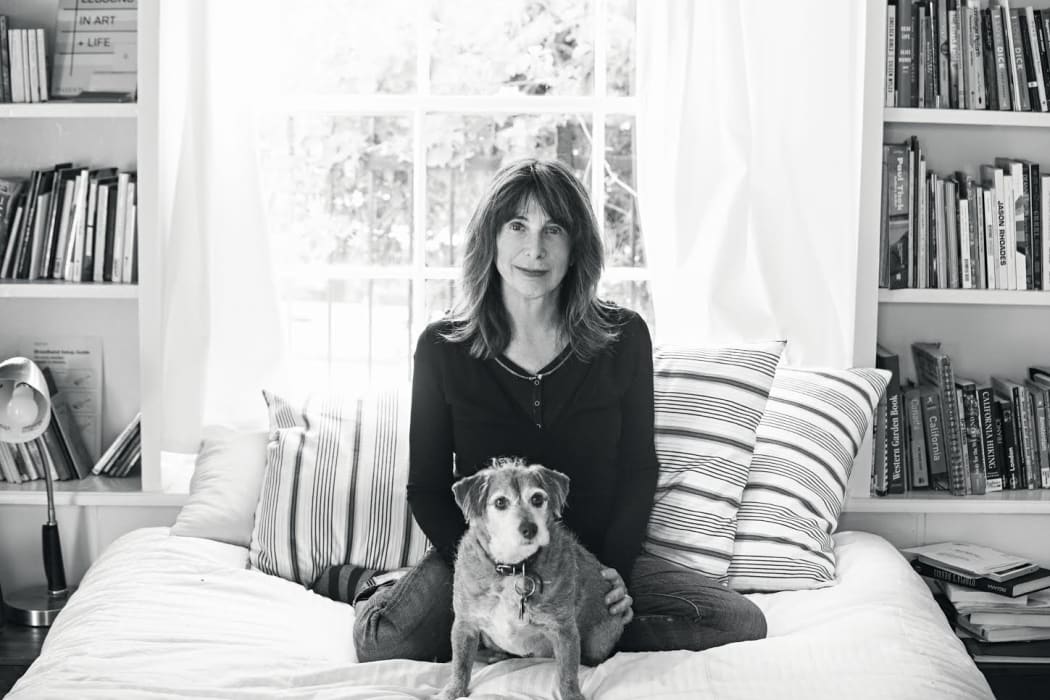
Chris Kraus Photo: supplied
Amazon recently released a pilot episode of a proposed new TV series called I Love Dick. It’s one of three pilots released by the media giant, which has asked viewers to decide which series ends up being green lit.
I Love Dick is based on the autobiographical novel by Chris Kraus. The series has been developed by Jill Soloway, the creative force behind amazon’s most celebrated hit, Transparent.
I Love Dick has been described as a feminist classic and a fictional memoir. Its author, Chris Kraus graduated from Wellington’s Victoria University in the ‘70s and New Zealand features both in it and her second novel, Aliens and Anorexia.
But can we claim Chris Kraus as one of our own?
Read an edited excerpt of the interview below:
I Love Dick was first published in 1997 to very little positive response, why do you think it is attracting so much interest and acclaim 20 years later?
It’s a funny thing. The book was republished in 2006. The managing editor made the decision to bring it out again in 2006 and weirdly when it came out at that time it was if it was coming out for the first time and that was the moment when, 2005 or so, was kind of the height of the female blog movement.
Everybody was now online all of the time and all of these brilliant women all over the country and all over the world had started keeping their own Tumblr blogs and writing really substantial and interesting literary and critical work on their blogs.
The book found its way into that world, the blog world of these younger women and they started writing about it. It kind of circulated on Tumblr in that way. Blogs were like the new zines, but in this medium the book gained a whole new life.
Then it started seeping into more mainstream circles. I was shocked in 2010 when someone told me they had seen the book mentioned in the British Airways magazine when they were on a plane ride.
Somehow I think the book ended up feeding into a lot of the discourse about autobiographical fiction and the way that autobiographical fiction is perceived so differently when they’re written by men and written by women.
What message does I Love Dick offer the young women of today?
I think you will probably have to ask the readers themselves what messages the book has. They can take from it what they will. You write a book and it is one thing to the writer. You put it out there and then it’s not really yours to say anymore, it has more to do with the readers.
I think people read things into the book that I didn’t thing that I was writing into the book, but that’s fine. That’s the nature of it.
One thing that I think feels very important and timely to the younger readers of I Love Dick now is the way it tackles the issue of privacy. The issue of privacy resurfaced big time when everybody was online all of the time and posting on social media and keeping blogs. There was such a taboo when I wrote the book against women using materials from their own lives and naming names. Nobody questioned it.
That taboo I think is now felt to be, by most younger women, completely unacceptable. They believe that everyone should own the right to speak to their own experience in their own terms and that always seemed really reasonable to me, so I think the privacy issue had a lot to do with it.
It certainly crossed boundaries. Was it a novel, or was it a memoir? You and other characters appear in I Love Dick under your own names. How much is invented and how much simply reported?
Well, it’s all reported. I used to be a reporter. When I started writing seriously, when I started writing I Love Dick in 1996 (actually it was in New Zealand that I was a reporter) I found that having been a reporter was incredibly useful because I didn’t feel the terror of the blank page. When you’re working on a daily newspaper you just have to write copy very fast. So, yes, it’s reportage, but that is a common literary technique.
I think that once you write something down, it becomes fiction because the writing process itself is so highly selective. I never set out to write the story of me in I Love Dick. It was a story of myself using myself as a case study at a certain place and time, in a moment in cultural history and looking back towards other cultural histories.
So, I was being very investigative, not just about my own situation, but about the culture in general. Writing is highly selective and what you choose to put into the book and leave out of the book and how you structure the book, that’s what makes it a literary enterprise and that’s what makes it fiction.

